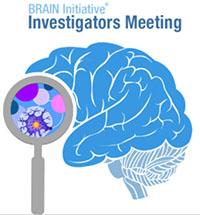
In December, the NIH BRAIN Initiative held its third annual BRAIN Initiative Investigators Meeting, gathering experts from around the globe to share their cutting-edge BRAIN-funded research. The attendees spent three days learning about each other’s work, forming new collaborations, and hearing from members of the BRAIN Initiative Alliance. The meeting featured many interesting panel discussions about the direction and implications of BRAIN Initiative research. On the second day of the meeting, a group of ethicists and scientists discussed some of the ethical implications of the technological advances emerging from BRAIN Initiative research. The panel included five members of the Neuroethics Division of the NIH BRAIN Multi-Council Working Group (MCWG), Drs. Christine Grady, Karen Rommelfanger, Rafael Yuste, Khara Ramos, Prof. Hank Greely, as well as Dr. Winston Chiong, a University of California, San Francisco (UCSF) professor and co-investigator on an NIH BRAIN grant. The neuroethics panel focused on defining neuroethics, why it is important to the scientific community, and how the scientific community might address neuroethical implications of their work.

Dr. Christine Grady provided an introduction to the session, discussing what neuroethics entails and how the NIH is working to integrate neuroethics in the BRAIN Initiative. Dr. Grady emphasized that neuroethics is distinct from research ethics and regulatory compliance. That is to say, neuroethics is a combination of both neuroscience and philosophy that explores the unexpected ethical consequences of neuroscience research. To follow up on this point, the director of the National Institute of Neurological Disorders and Stroke, Dr. Walter Koroshetz, spoke about the importance of integrating neuroethics into the BRAIN Initiative’s priorities. Current and future BRAIN Initiative research studies aim to elucidate, and potentially influence, the mechanisms that give rise to consciousness, our innermost thoughts, and our behaviors, thereby prompting novel social and ethical questions. Because of this, the NIH released a Request for Applications (RFA) to fund research on neuroethical issues associated with neurotechnological advances supported by the BRAIN Initiative. Dr. Koroshetz reminded the audience that unexpected ethical problems can potentially derail cutting-edge science, and neuroethics is a tool for anticipating and navigating ethical issues.
